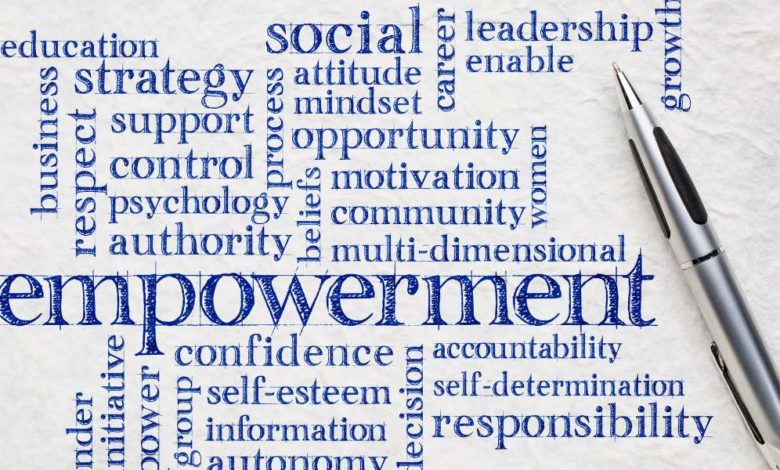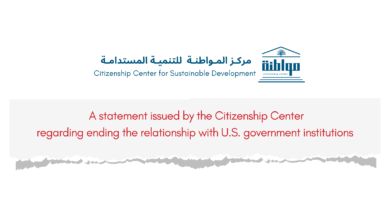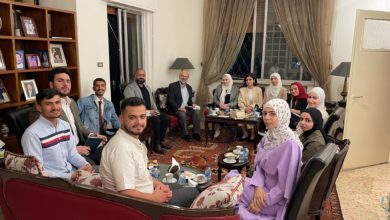Have political empowerment programs in civil society organizations succeeded in empowering youth politically?

Hayat Al-Dbeas – Journal of Political Awareness
While civil society institutions, through empowerment programs, seek to develop the level of youth skills in political participation, the results of the master’s thesis that I discussed in the specialization of sociology and social work, under the title The role of civil society institutions in empowering Jordanian youth, an “evaluation study”, indicated that the field of political empowerment received the lowest evaluation degree, with a degree of (low effectiveness). This indicates that despite the spread of empowerment programs, the link between the development of empowerment policies or programs and the theory of empowerment is still weak in most cases, in addition to the lack of awareness of civil society institutions for approaches to empowerment and aspects of youth empowerment. Yet, this makes the process of empowering young people randomly, and therefore these institutions must determine the empowerment approach that they are working on. Is it within the approach of treatment, the approach of reform, the approach of awareness and advocacy, the approach of radicalism, or the approach of liberalism???
Most researchers agree that empowerment, despite its different fields and contexts where it is applied, refers to “people, groups or societies that gain control or power in the contexts of their lives”. It is linked to three basic concepts: (empowerment and power), ( Empowerment and Participation), and (Empowerment and Learning). An analytical framework was based on the theory of positive youth development to see whether the institutions reached the three concepts through their programs in empowering Jordanian youth. This framework depends on three things: Youth from a life-cycle perspective, the system of opportunities and services provided to empower youth, and the expected empowerment outcomes (5Cs).
The result of the evaluation of political empowerment may be attributed to the impact of civil society institutions on the nature of the systems (legal difficulties) in the country, and the surrounding political conditions in Jordan, in addition to the material difficulties. Yet, political empowerment programs did not succeed in enabling young people to build safe spaces to express their opinions freely. It also did not help them to develop the skills of evaluating and writing electoral programs. This is what makes them most of the time deciding to hold back and not participate in political affairs, or to agree to the community consensus on the decision to participate. The unwillingness of young people to participate in the elections, as well as their access to parliament during the 2020 parliamentary elections, is an important indicator of the weakness of the political empowerment of young people. This does not mean that the responsibility for political empowerment and the promotion of political participation falls on civil society institutions alone, but, to be more specific, it is all about their role in this field.
Despite the low degree of evaluation, civil society institutions provided support for young people to join parties and educate them about the constitution and their right to access information to a moderate degree. This makes us realize that the role of civil society institutions directly reflects the level of youth political and partisan participation. Political participation is the pillar of democracy and a clear expression of the principle of people’s sovereignty. It requires the existence of a group of citizens who have a sense of belonging and interest in public affairs. The lack of readiness of this group and its presence may reflect negatively on the level of their political participation. This makes the interest in empowering them extremely important. The participation will reduce the political gap in which young people live by marginalizing them and not paying attention to their issues.
Today, it must be recognized that young people are suffering from a state of despair as a result of other circumstances related to the economic, security, cultural and social situation. This makes their political participation, not a priority. Therefore, we stress the need for civil society institutions to design their programs and projects towards young people based on an empowering approach, building on their strengths and resources, taking into account their age stages and the specificity of the transitions they are going through to ensure a safer transition from childhood to adulthood. Similarly, this is confirmed by the concept of (Youth Empowerment) developed based on the theory of positive youth development, which means: “an integrated and transitional process according to the age group and the context with which it interacts.”
The reluctance of young people from political participation due to the inability of empowerment programs to meet their needs and challenges will make the margin of democracy always limited. Thus, the empowerment process must be a well-thought-out process with a clear objective. Jordanian youth should be youth who see political and partisan participation as an essential element and one of the most important priorities that will bring change in all fields, whether social, cultural, economic, and political. Political participation should become for all age groups, the path of reform, change, and development. This requires sharing empowerment programs with various institutions with which young people interact, starting with the family, school, and university, to be an integrated process of empowerment from all sides.





